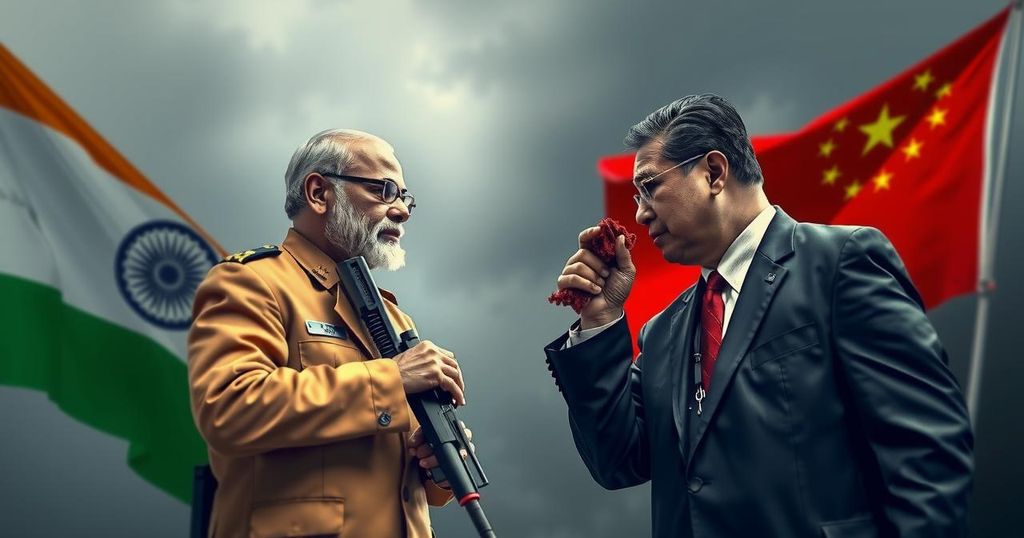India and China Reach Agreement on Military Standoff at LAC
India and China have reached an agreement on patrolling arrangements and resolution of the military standoff at the LAC, marking a potential end to tensions that began in April 2020. This agreement was announced by Foreign Secretary Vikram Misri during a media briefing, coinciding with Prime Minister Modi’s upcoming BRICS summit in Russia. While the specifics of the agreement remain limited, the emphasis on continued diplomatic engagement suggests a positive direction for future relations.
On October 21, 2024, a significant development occurred in the India-China relations as both nations announced an agreement on patrolling arrangements and a resolution of the ongoing military standoff at the Line of Actual Control (LAC). This accord encompasses areas along the LAC where military personnel had previously disengaged over the past few years, and importantly, addresses previously unresolved regions such as Demchok and Depsang. This announcement heralds the potential resolution of the standoff that has persisted since April 2020. During a media briefing in anticipation of Prime Minister Narendra Modi’s upcoming attendance at the BRICS summit in Russia, Foreign Secretary Vikram Misri confirmed that Indian and Chinese diplomats and military officials had engaged actively over the preceding weeks to reach this agreement. Mr. Misri remarked that the discussions had yielded a consensus on the patrolling protocol along the LAC, thereby paving the way for disengagement and addressing issues that have arisen since 2020. Despite the announcement’s timing—just a day before the BRICS summit—there was no confirmation of a scheduled meeting between Prime Minister Modi and Chinese President Xi Jinping. However, discussions on various bilateral meetings during the summit remain ongoing, suggesting the possibility of renewed dialogue between the two leaders. Mr. Misri, who possesses substantial experience as a former ambassador to China, provided insight into the numerous meetings and interactions that facilitated this breakthrough, including discussions between External Affairs Minister S. Jaishankar and his Chinese counterpart, Wang Yi. These discussions have reportedly culminated in a manageable framework to restore normalcy along the contentious border. Furthermore, External Affairs Minister Jaishankar stated, “We have gone back to where the situation was in 2020; so we can say that the disengagement process with China has been completed. To my knowledge, we have reached an understanding regarding patrolling.” He emphasized the importance of this agreement for establishing peace and tranquility in the border areas, which had been disrupted since 2020.
The military standoff between India and China at their shared border, specifically the Line of Actual Control (LAC), began in April 2020, leading to heightened tensions and confrontations, including a deadly clash in Galwan Valley. Over the subsequent years, both nations engaged in diplomatic and military dialogues to manage the situation and reduce tensions. Key meetings between diplomatic and military officials have been crucial in navigating the complexities of this dispute, with recent engagements signaling a proactive approach towards resolving long-standing issues. The announcement of an agreement on patrolling arrangements not only signifies a thaw in relations but also suggests that both countries are looking towards constructive dialogue to ensure stability along their borders.
The recent agreement between India and China to resolve military tensions and establish new patrolling arrangements at the LAC marks a pivotal moment in their bilateral relations. This development reflects the results of sustained diplomatic efforts and negotiations, demonstrating a commitment to restoring peace and stability. The continued dialogue and potential for meetings between Prime Minister Modi and President Xi at the BRICS summit indicate a willingness to engage cooperatively, which could further enhance regional security and diplomatic relations moving forward.
Original Source: www.thehindu.com




Post Comment